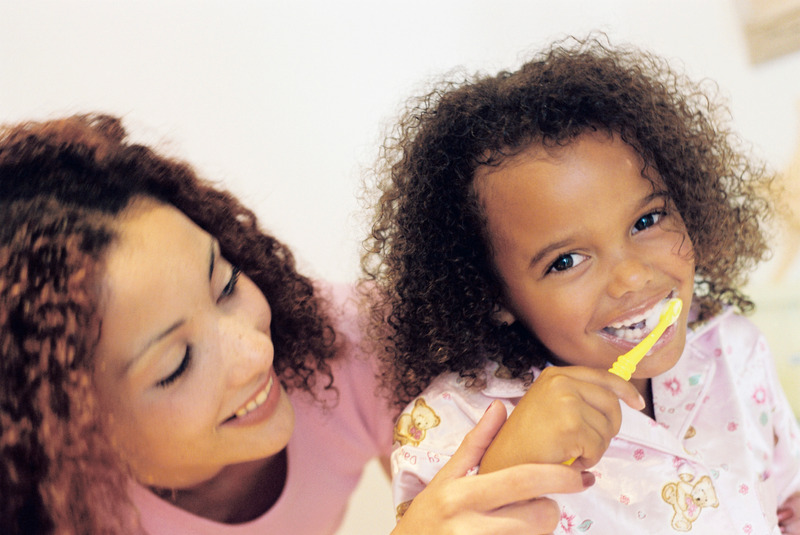The healthy habits we learn when we are young tend to stick with us throughout life. Good oral health care is one of the most important of these. That’s why it’s crucial to introduce children to brushing and flossing in a way that makes it fun and gives them a sense of accomplishment.
Putting Kids on the Path to Good Oral Hygiene
While taking care of their teeth and gums is something kids need to do every day, there’s no reason it has to feel like a chore. Here are some steps you can make brushing and flossing fun:
Start early
Even before a baby has teeth, you should get them comfortable with the concept of oral care. You can do this by gently cleaning their gums with moist gauze or a washcloth. When the first tooth appears, you should begin brushing it for your child.
“Monkey in the mirror”
To help kids develop an awareness of the cleanliness of their teeth you can join them in making funny open-mouth faces in front of the mirror. As you enjoy a good laugh, you can both observe whether your teeth and gums look clean and healthy, and you can point out that brushing and flossing will help with this.
Model the right behavior
Invite your kids to watch you perform your own oral care, grinning the whole time as you brush and floss. Afterward, be sure to tell them how fresh and clean your mouth feels and comment on how bright your smile is. Your kids look up to you, and your example will go a long way in encouraging them to establish healthy habits.
A gradual handoff
At approximately three years of age, kids can start to take responsibility for their own oral care to a degree. However, you should not expect a child to handle oral care completely unassisted yet. A transition period where you slowly let them take charge will help prevent resentment and failure. Slowly transfer responsibility for independent brushing from you to them over a period of months. As they become more proficient, be sure to tell them that you’re allowing them to take over because they are doing such a great job!
Talk about the importance of proper nutrition
It’s important for kids to know that in addition to brushing and flossing, eating a healthy, low-sugar diet can play a big role in having a healthy mouth. Drinking lots of water (especially in place of sugary juices or soda) is essential as well. Here again, you should model this behavior by eating and drinking the right things yourself.
Frame dental visits as an adventure
Always talk about visits to the dentist in positive terms — friendly people, cool tools, etc. And be sure to visit the dentist regularly so that your kids see this as part of their normal routine.
Share the good news
Have your child tell family and friends that they had a fun visit to the dentist. Be sure to let these people know that “Did you have any cavities?” is not the best question to ask, as it implies that cavities (and consequently the procedure to take care of them) is something to be concerned about. Ask them instead to focus on how great it is that your child is taking good care of their teeth and gums.
Looking ahead to a Lifetime of Good Check-ups
Helping your child establish good oral health habits is easy if you are consistent and you focus on making oral care fun and enjoyable. They may not thank you now, but years down the road they’ll understand what a gift you’ve given them!


Recent Comments